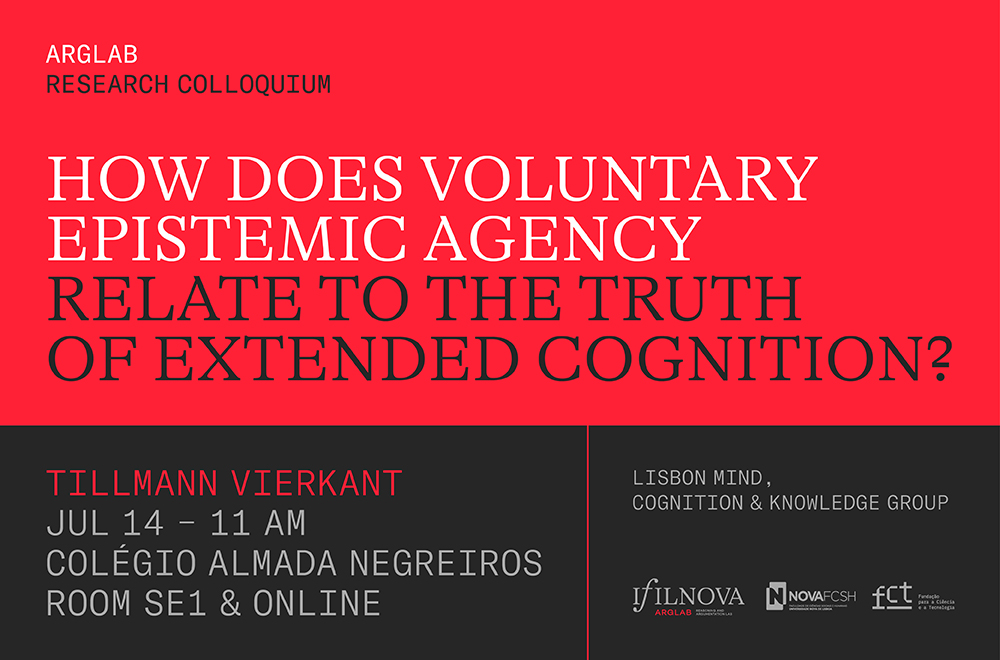Tillmann Vierkant on “How does voluntary epistemic agency relate to the truth of extended cognition?”

Deliberating is a voluntary epistemic action or so our intuition tells us. But it seems also intuitively plausible that we cannot form beliefs voluntarily. So, if deliberating is voluntary and belief formation is not does that mean that the two are at best indirectly connected? In this paper I will argue that the answer to this question can be illuminated by thinking carefully about the role both deliberation and belief acquisition play in the cognitive process.
On the one hand, one can hold with Galen Strawson that voluntary mental actions are only ever preparatory or catalytic for real cognitive processes. On this understanding belief acquisition is all there is to the cognitive process and deliberation is indeed only indirectly connected to cognition. On the other hand, one can understand the cognitive process more diachronically. In this way deliberation can be a constitutive part of the cognitive process. Finally, I will defend that while this second solution might sound intuitively more plausible it is only possible to hold it consistently if one also agrees to the truth of extended cognition.
Tillmann Vierkant (University of Edinburgh)
To join the session on Zoom, please get in touch with Gloria Andrada de Gregorio at gandrada@fcsh.unl.pt for the details.
This event is part of the ArgLab Research Colloquium organised by Maria Grazia Rossi, Giulia Terzian and Gloria Andrada at the Laboratory of Argumentation, Cognition and Language of the NOVA Institute of Philosophy. For any inquiries, please contact Maria Grazia, Giulia, or Gloria.

